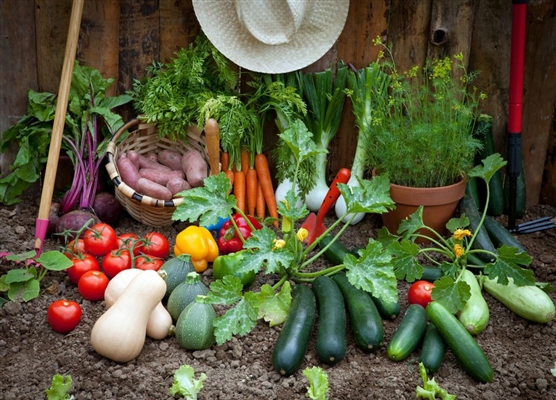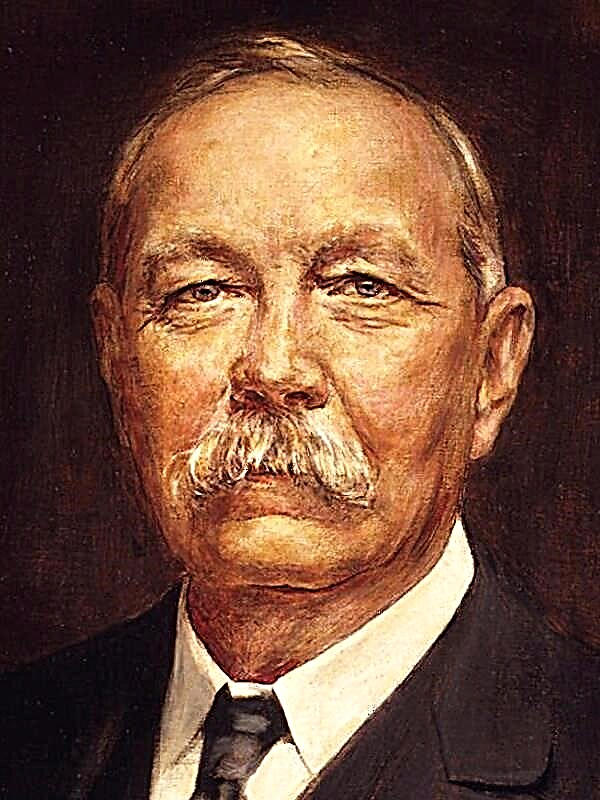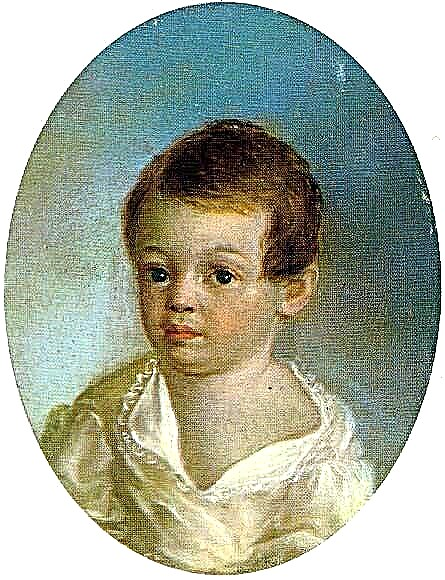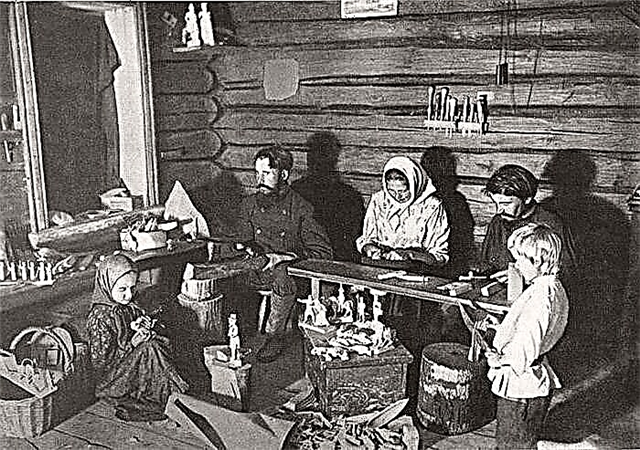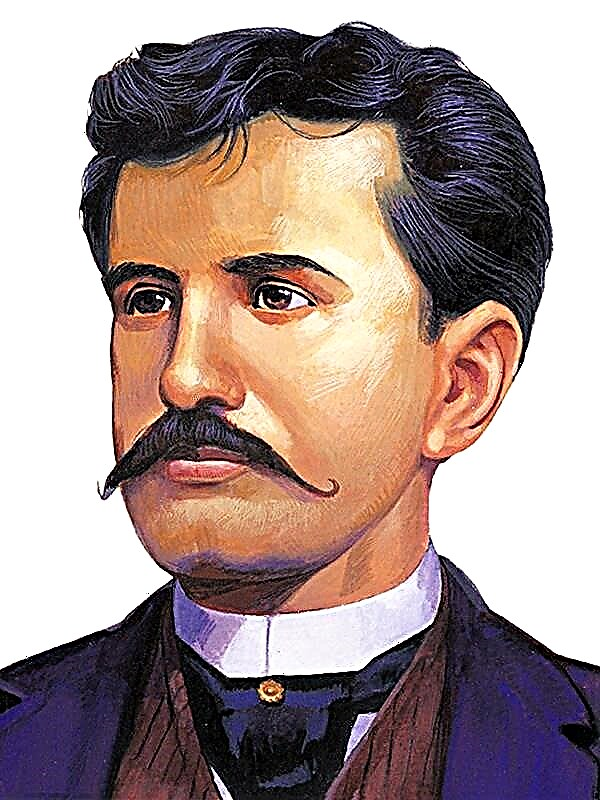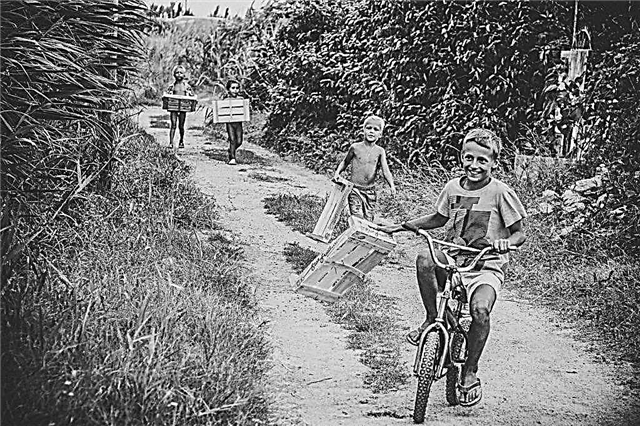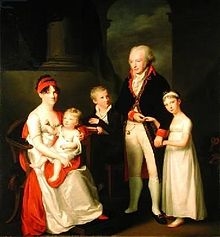: Little sisters are upset by the story of Tolstoy's “Prisoner of the Caucasus”. The girls come up with a good ending for the story, base a fun game on it and decide that this story is not at all sad.
The spring garden was fun and beautiful. The young foliage of birches turned green and the soft needles of the old fir tree at the pier, sparrows flew in flocks from tree to tree and fought, the starling sitting motionless above the birdhouse looked "at the ripples of a small river". Along the fence that separated the garden from the neighboring estate, dachshunds and a mongrel Tuzik ran: dachshund - on the other side, Tuzik - on this one.
Below, behind the lilac bushes, the St. Petersburg river Krestovka was visible. On a long, cased bird cherry spit stood a large barn, which housed an English rowing club. Young men in white sweatshirts sailed on Krestovka in a long light boat. At the pier, the “troika of mischievous boys” rocked an old creaky boat, an old man sailing along Krestovka punted logs and fragments of planks from the water, and towards him a noisy company of clerks with harmonica and smart girls was floating in the boat.
It was also cozy in the outbuilding adjacent to the garden. Only the sisters living in the outbuilding, the eldest Valya and the younger Katyusha, were sad at this beautiful one.They stood silently at the glass door to the garden. A tear shone on Vali’s cheek, and the gloomy Katyusha looked angrily at the starling. The girls were excited about Tolstoy’s novel “The Prisoner of the Caucasus,” which they had just read.
Once written, it means the real truth. This is not a children's fairy tale about Baba Yaga, which maybe adults deliberately invented in order to scare children ...
Mom went shopping, dad was in the bank, the nanny was away, and the sisters had no one to ask if people in the Caucasus really torment like that. Finally, Katyusha was tired of being sad on such a bright day, and she was comforted by the fact that the ending of the story is still good.
The sisters decided that after the escape, Zhilin would catch the Tatars who tortured him, and ordered them to be painfully netted, or even let go, like a generous Russian officer. He would pass the St. George medal and the alphabet to his captive Tatar girl Dina. Dina learns to read Russian, reads the "Prisoner of the Caucasus", runs away to Zhilin and marries him.
Comforting themselves with such a good ending, the girls went into the garden, where they were met by the “constant adjutant” Tuzik. In the corner of the garden, near the abandoned greenhouse, the sisters found a deep hole and decided that it would be very convenient to play the “Caucasian captive” in it. Zhilin became the son of the janitor Mishka, and Kostylin - Tuzik.
At first the girls became ferocious Tatars, took Mishka, who rested from mischief, into captivity and put him with an ace in a hole in the pit. On behalf of Tuzik-Kostylin, they scribbled a message on the plaque with a ransom demand and delivered it to the janitor Semyon.Then Mishka threw toys to the “Tatar girls” brought by Valya from the house, and in return received pies, most of which Tuzik caught.
The “Caucasian captives” liked to sit in a cozy pit full of last year’s soft foliage so much that they did not want to run away from there. At the end of the horses, the girls also went down into the pit and sat down on the rug - there might be four prisoners, but you still have to run at night.
About two hours later, my mother returned and began to look for daughters around the outbuilding. Then a janitor came with a strange message on a tablet and said that Mishka was gone too. Mom became alarmed, began to call girls and soon found all four “captives” in the pit on the rug.
The girls walked home, clinging to their mother on both sides, and thought: why was the “Prisoner of the Caucasus” so upset, because this is actually a “good thing”.

